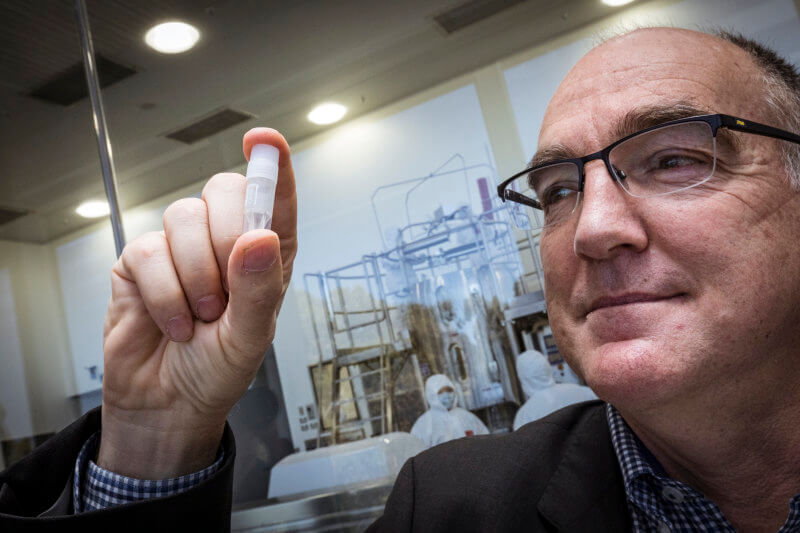
Report highlights 2 Egyptian projects among major clean energy ventures in N.Africa
A report by Energy Capital & Power highlighted two Egyptian projects – Suez Wind Power ...

Global biotech company CSL will begin manufacturing millions of vials of one of the most promising coronavirus vaccines in Melbourne, in the hope trials will prove it is effective and can be rapidly distributed.
CSL chief scientific officer Andrew Nash said one-millilitre vials of the University of Oxford-AstraZeneca COVID-19 vaccine will be thawed on Monday, having been frozen in liquid nitrogen to preserve their integrity.
The thawed vaccine, which came from a cell bank, will be added to a bioreactor – a large vessel where biological reactions take place – where it will go through a fermentation process, grow and multiply. This facility at Broadmeadows is the only one of its kind in Australia, Dr Nash said.
The vaccine will spend six days multiplying in the bioreactor, then be filtered and purified, leaving just the antigen – or vaccine product – ready to be put into dosage vials. There will be eight or nine processes like this, each producing 3 million to 4 million doses.
The biotec company has separate contracts with AstraZeneca and the Australian government to manufacture about 30 million doses of this vaccine candidate.
CSL said the total processing time for the vaccine is approximately 50 days. The vaccine is still subject to approval by the Therapeutic Goods Administration for use in Australia.
The results of stage three clinical trials on the vaccine are expected by the end of this year. If they are positive and the vaccine passes all regulatory requirements, the first doses could be released in the first half of next year.
CSL is manufacturing two separate vaccines, the Oxford-AstraZeneca vaccine and the University of Queensland vaccine. These will be done at separate times.
In animal studies, both the Oxford vaccine that Australia purchased and the University of Queensland’s vaccine effectively stopped SARS-CoV-2 getting deep into the lungs.
“From the phase one studies we have seen the [Oxford/AstraZeneca] vaccine is safe, which is the really critical thing, so we’re not doing any harm,” Dr Nash said.
A report by Energy Capital & Power highlighted two Egyptian projects – Suez Wind Power ...
The opening concert of the Annual Meeting 2025 in Davos-Klosters will address the pressing issues ...
Juhayna Food Industries proudly announced that its agricultural arm, El Enmaa for Agricultural Development, has ...


اترك تعليقا